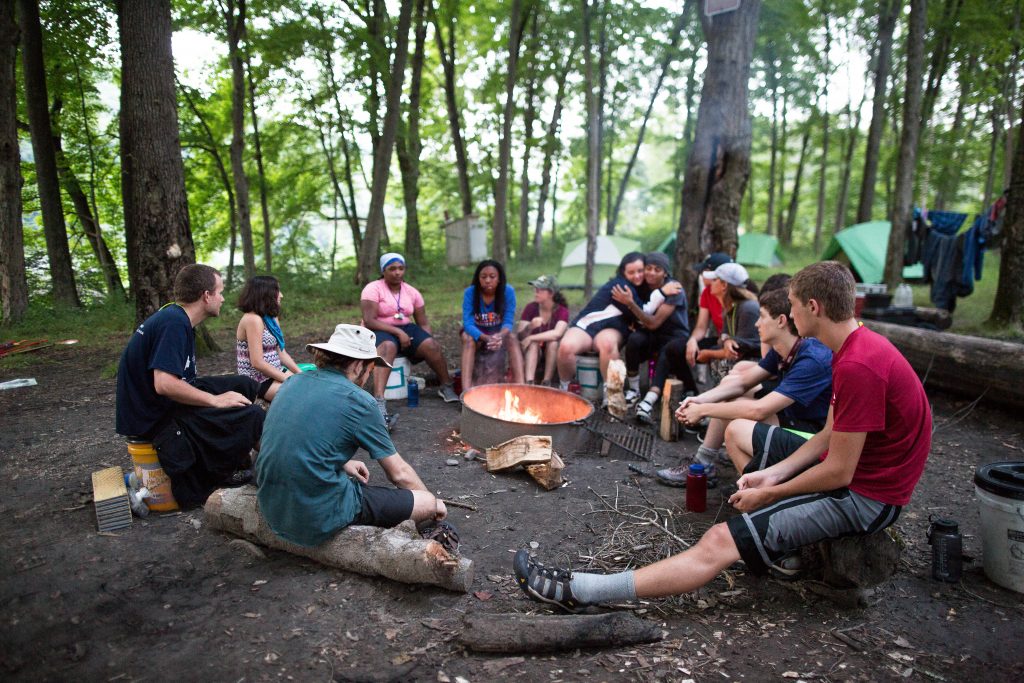Everyone’s motivations are unique. While one student may have a strong internal motivation to learn a foreign language based on interest or passion, the person next to them may be purely motivated by external forces, such as the desire to please people. There are two broad ways we are motivated and they are generally characterized into two buckets: external motivation and internal motivation.
External motivation can be defined as motivation created by factors external to the self. For instance, pleasing others, doing a task or job solely for the reward or meeting expectations set by school or work.
Internal motivation can be defined as a desire to understand and achieve based on something’s relevance. For instance, someone may want to learn regardless of grades or gold stars because they are interested in the subject and believe it is worth learning!

Photo by Jesse Swedlund
External vs. Internal Motivation
External motivation uses the desire for reward or the fear of punishment to drive someone towards achievement. Using external motivation is quite effective, however, it does not always last. Someone may lose interest in the reward or stop caring about the punishment and with it stops their motivation. Why? Because the motivating factor didn’t start from their own interest or desire. When we encourage others to only care about the fear of failure or the glow of success, we miss the opportunity to encourage self-motivation.
Internal motivation tends to be more productive as it comes from a deep-seated interest in a situation or subject. When someone is internally motivated, more than likely they find joy in expanding their knowledge and working towards a bigger picture.
Research has found that the best outcomes come from encouraging a balance of both external and internal motivation. While external motivation can help encourage someone to be driven and competitive, internal motivation encourages their investment in learning.

Cultivating Motivation on an Outward Bound Intercept Expedition
When it comes to cultivating motivation on an Outward Bound Intercept expedition, our goal first and foremost is to help students build and develop their own self-motivation. Below are four ways we pursue this on a course that can also easily be incorporated at home or in the classroom this school year.
1. Building a Strong Sense of Purpose
One of the best way to do this is through “value work.” Value work is when you take time to understand what values you possess through practices such as journaling, meditation or open-dialogue with a friend or mentor. What makes up your core values? Respect, honesty, creativity? How do those show up in your life? When it comes to making decisions that reflect your key values, understanding the “why” behind your motivations gives you a north star to follow and helps you create a clearer sense of purpose.
During Intercept expeditions, we give students opportunities to work through their goals and challenge them to analyze their values, their “why” behind them. Identifying this strong sense of purpose is crucial both on and off course while students use their purpose to push themselves in positive directions.

2. Developing a Growth Mindset Through Failure and Resilience
If you believe your talents and intelligence are fixed and incapable of being improved, you are more likely to feel and act stuck. We aren’t “born with it” when it comes to learning, setting goals or putting in the effort, we build a mindset for it over time.
During Intercept expeditions, one of the main ways we encourage students to foster a growth mindset is by challenging their thinking and conclusions surrounding their abilities. Is their mindset, “I’m just not good at it,” or “I never tried it so I doubt I can do it?” These statements about oneself come from somewhere and often, they come from a fear of failure. One of the goals of every expedition is to encourage learning rather than failure. We try to respond to failure with compassion for ourselves and one another, giving us all an opportunity to experience resilience. Resilience keeps each other motivated because those who do the work also do the learning.
3. Prioritizing Giving Over Receiving
We encourage students to practice building relationships that serve and help one another. Why? Because when we’re so focused on what we can get out of life, we can lose the chance to be creative and get stuck with a mindset that “nothing is good enough.”
By taking the focus off themselves and onto others, students begin deepening relationships with those around them. Strong relationships encourage high motivation because instead of focusing on transactional experiences, you’re focusing on gratitude and working towards a much bigger picture together!

Photo by Ryan Harris
4. Creating Space for Feedback
Giving feedback has become a daily habit for any adventurer on an Outward Bound expedition. We all know that giving praise to each other increases motivation. At Outward Bound, we help students craft the skill to give not only motivational feedback but developmental feedback to themselves and their fellow students in a way that motivates and reinforces positive change. Feedback is a healthy and critical tool when it comes to maintaining a growth mindset as well as practicing better leadership skills.
We encourage students to use developmental feedback as a way of learning, staying open-minded and practicing empathy for each other. Being critical of mistakes only decreases motivation. With developmental feedback, instead of saying, “you’re bad at this,” the person giving the feedback can say, “I see you’re tying the knot this way. Have you tried it this way? It’s much easier and produces a stronger knot!” The second statement motivates and encourages progress, while the first discourages forward movement. Practicing the art of feedback takes time but when it becomes a daily habit, like on each course, it gets easier and improves.
What You Do Matters
From learning how to give feedback to encouraging a strong sense of self, there are many ways motivation cultivates on an Intercept course. Ultimately, the best type of motivation comes from the belief that what we do and who we are matters. At Outward Bound, it is part of our mission on every course to show each student that their worth isn’t what they do but instead it is who they choose to be. We tell our students to act as if everything they do matters because, at the end of the day, it does. The secret of tomorrow’s success hides within the choices of today.
About the Author
Hanna McCarthy is a former Outward Bound Instructor and now lives and works in Philly with her husband, Nick, and two dogs, Jelly and Waffle. She finds time each year to surf in new places and enjoys spending time with friends and family. Hanna now splits her career between a corporate job and teaching yoga, finding balance in her life.
OTHER POSTS YOU MAY LIKE
Read More
Read More
Read More




